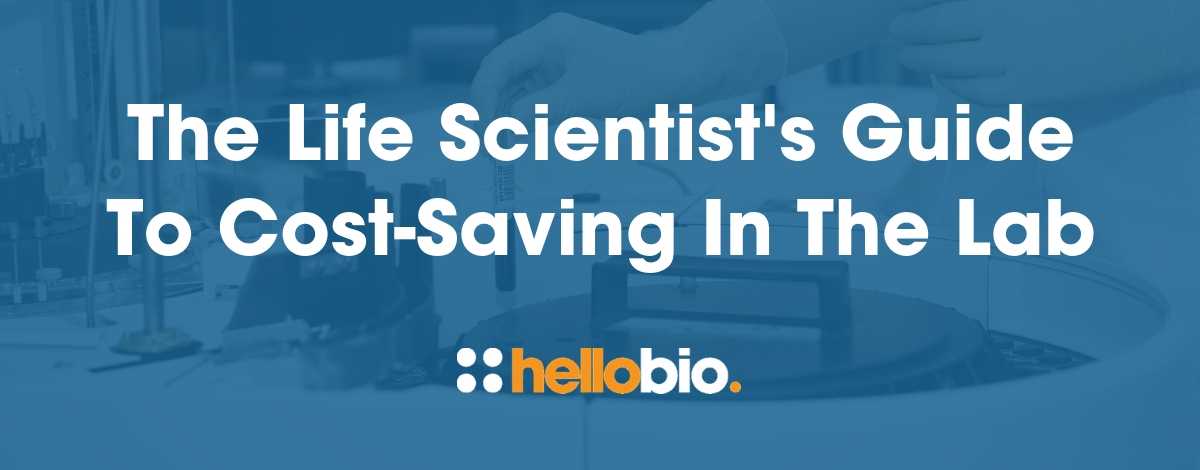Should I do an Internship Abroad? The Whys and Why Nots
Maybe you’re thinking: “Oh no, another student telling us about their experiences while staying abroad for educational purposes, AGAIN.” I know, many stories about Erasmus (as we call it in Europe) include daily parties and nightly adventures, but students can gain so much more from an international internship by balancing hard work and fun (aside from the fun we all have doing science of course).
As stated by Sonia Sanz Muñoz in her blog Undertaking a PhD in an International Lab, the reasons for going abroad for an internships during your studies partially overlap with reasons for doing a PhD in a different country. Some people might go because they like traveling, others might go because they want to grow as a researcher.
The main reason why I chose to go abroad was personal. I wanted to challenge myself and expand my knowledge. Another thing that pushed me to go was the curiosity to discover what labs were like in other countries. If I asked, each and every one of you would probably have different answers as to why you do (or don’t) want to go abroad for an internship or to study. Just remember that it’s entirely YOUR decision and nobody can tell you that your reasons are not valid (enough), or push you to go if you aren’t comfortable doing it.
The WHYs of Going Abroad for an Internship
“I want to try different things because I don’t know what I want to do in the future.”
As a student, you’re confronted with a daunting array of different career pathways. At the beginning of your career as a scientist, it’s not possible for universities to provide practical sessions for all areas of research and technologies, so it might be hard to know what you would like to do in the future. Internships can help you discover your interests and decide what you do and don’t like. At the same time, make your resume stand out because giving up your ‘free time’ to pursue science highlights your motivation and drive, which are essential for a good researcher. And let’s be honest, we all know that internships abroad look great as they imply independence and responsibility.
“I want to start networking early.”
Networking makes or breaks your future career. Contacts are THE key to success because science is a team sport. Even if you aren’t planning on working abroad in the future, having international contacts will definitely improve your research. At some point, you might need an expert’s advice or guidance to become an expert yourself. As experts are located all over the world, learning from an expert can only be possible when you actively network (or if you’re extremely lucky to have an expert based at your university). When their schedule allows it, passionate researchers are more than willing to help you out because they aim for the greatest good for science, not for themselves.
The WHY NOTs of Going Abroad for an Internship… Turned Around
Of course, you could probably also think of many reasons not to go abroad for an internship. The following reasons crossed my mind before applying for the IFMSA (International Federation of Medical Students' Associations) program, but I turned them into reasons why I would go instead. It might be the case that you can’t turn them around like this, and that’s okay – but I would argue that trying to do so is equally important to challenge yourself. Always try to be critical when your decision is based on WHYs and WHY NOTs.
“I don’t think I can be away from home for such a long time.”
As a real homebody, I struggled with the thought of being away from home for a long time, but I didn’t want that to stop me. Although most internships last a couple of months, there are some short(er) ones out there. If you like this idea, you should definitely investigate IFMSA. This international institution organizes 4-week internships for (bio-)medical students, which will suit different personalities and goals.
“Going to another country might mean the quality of the labs and education will decrease.”
If you’re lucky enough to live or study in a country that is well-developed, you might be worried about “downgrading” your education by going to another country that’s less developed. While the labs in your destination country could be less sophisticated than the ones in your home country, that doesn’t mean you won’t learn anything there. Far from it. In labs where resources are limited, researchers tend to be more creative to find solutions for problems which would normally be solved with machines or expensive set-ups. This way, working in a less-equipped lab can improve your ability to solve problems and help reduce costs in your future lab by being creative with limited resources.
“I’m not good enough to go abroad.”
Maybe you don’t have the qualities of a brilliant researcher YET. But this is why you’re a student; you’re here to learn and improve. Nobody is born as the perfect scientist, you grow into a good researcher by falling and getting up again many, many, many times. Allow yourself to make mistakes and learn from them. Be a student.
“I’m too much of an introvert / I’m too shy.”
That’s totally fine. Be who you are, but don’t let it hold you back. By going abroad to do an internship, you will push yourself beyond your limits and get out of that comfort zone. And that’s the essence of science. Look up to your limits and challenge yourself by trying to pass them. After you’ve finished, you’ll be more than proud of yourself for putting yourself out there. Even though your adventure might look like a small step to others, going abroad might be as challenging for you as jumping out of a plane for someone who is terrified of heights. Every little thing you do to push yourself will make you into a great scientist.
~
If you search, you’ll find a ton of articles, blogs and websites offering tips to guide you through your internship abroad. They all describe how you should prepare, how you should also discover the country and enjoy your time off, etc. What they say is all true, but the most important thing is your mindset and how you handle the situations that will cross your path. And so, my final piece of advice if you DO go for that internship abroad is…
“Don’t panic too soon.”
The chances that everything will go perfectly are small. You might feel disappointed by the country or the lab on the first day, you might even mess up an experiment or your project might be outside of the scope of your interests. These things happen, every day. It’s not the end of the world. Just stay calm and remember that you’re doing this because you love science.
Unlike me, don’t panic when something isn’t quite as you expected. I felt horrible on the first day of my arrival in Taiwan because I thought that I didn’t like the country, or the people, or the food… and as it turned out, this panic was completely unnecessary. My hotel for the first few days was simply located in a bad neighbourhood and the rest of my stay was great – in fact, I ended up loving my time in Taiwan.
__________________________________________
Jolien is a final year Biomedical student at the University of Antwerp (BE) majoring in Neurosciences. For her thesis, she is working on the development of a diagnostic tool for major psychiatric disorders using peripheral blood mononuclear cells. When this project receives a grant, Jolien will continue to work on it after graduation as a PhD student. Her life goal is to improve healthcare and life quality of patients suffering from psychiatric disorders. This summer, Jolien went abroad for a 4-week internship in Taiwan. The rest of the summer was filled with an internship in her home country to prepare for her thesis.
You can connect with Jolien on LinkedIn here.
_________________________________________________
If you enjoyed reading this article, why not check out the other resources available on our blog. We are passionate about supporting early career life scientists and PhD students - with really low- priced reagents and biochemicals, travel grants, and resources to help with both personal and professional development. We know how tough it is - so we hope you find these helpful!
Advice & guidance for life scientists
Click below to view our of essential guides and articles includes to support life scientists, PhD students & early career life scientists:
Travel grants
Every month we give away $500 to PhD students and Postdocs so that they can attend a scientific conference - click below to find out more:
Wellbeing for scientists
Click below for our resources to help improve your wellbeing:
Technical resources
Try our Molarity Calculator: a quick and easy way to calculate the mass, volume or concentration required for making a solution.
Try our Dilution Calculator: an easy way to work out how to dilute stock solutions of known concentrations
Click below to see our Mini-reviews, Pathway Posters & Product Guides: a set of technical resources to answer your questions on a wide range of topics and to help you get started quickly.
And - when you get to the stage of planning your experiments, don't forget that we offer a range of agonists, antagonists, inhibitors, activators, antibodies and fluorescent tools at up to half the price of other suppliers - click below to see how we compare with other suppliers:





















